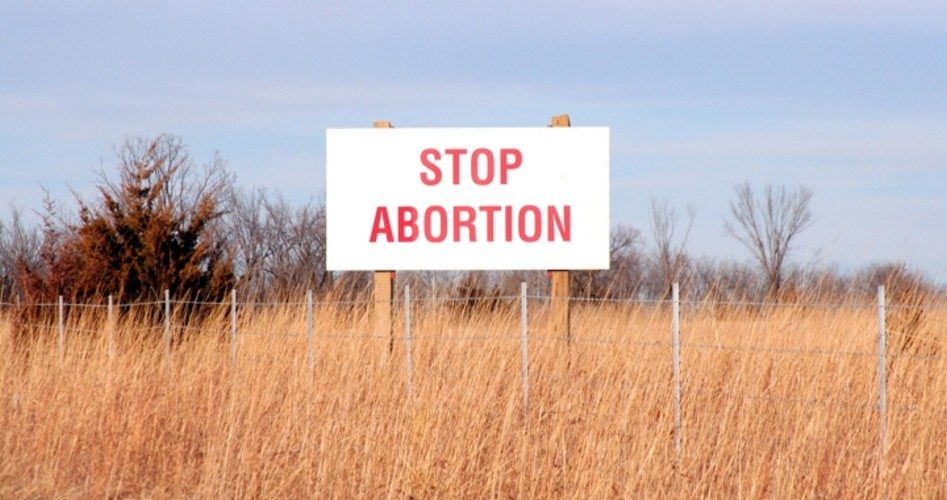
Mississippi Governor Phil Bryant has indicated he will sign a bill passed by both houses of the state legislature that bans abortion after 15 weeks of pregnancy.
“As I have repeatedly said, I want Mississippi to be the safest place in America for an unborn child,” Bryant said Tuesday on Twitter. “House Bill 1510 will help us achieve that goal.”
State House Bill 1510 originally passed the Mississippi House on February 2 by a 79-30 vote. A version of the bill amended by the state Senate was then passed 75-34 on March 8. The bill would prohibit abortions after 15 weeks, but it does allow an exception when there are risks to the life or physical health of the mother, or fatal fetal anomalies.
State Representative Andy Gipson, chairman of the state House Judiciary B Committee, said the legislators wanted to protect women’s health by prohibiting later-term abortions, which are riskier to women.
“The risk to the mother is the prime driver in this bill,” Gipson said. “I think the Supreme Court has recognized that the states have an interest in protecting human life.”
Senators voted 35-14 on March 6 to pass House Bill 1510. The Senate amended the bill to remove possible felony charges for abortionists who violate the 15-week ban, although those who do abortions after that limit would have their professional medical licenses suspended or revoked.
The legislation was returned to the state House and, as noted above, the House approved the Senate version on March 8.
An AP report quoted a pair of Senate Republicans about the purpose of the legislation. Senator Angela Burks Hill (Picayune) called abortions after 15 weeks “barbaric” and “inhumane.” And Senator Chris McDaniel (Ellisville) said the intention of the bill is to protect the lives of 15-week-old children.
Senator Joey Fillingane (R-Sumrall) said senators removed the language about possible prison time for physicians because, “I just don’t want to criminalize any behavior.”
Fillingane said he thought the potential of licensing sanctions and civil penalties was sufficient. He also said that physicians groups opposed criminal penalties.
AP also quoted the radically pro-abortion group NARAL Pro-Choice America, whose communications director, Kaylie Hanson Long, issued the following statement:
We know what happens when abortion is illegal or inaccessible: Women are forced to travel out of state to get essential care, women who can’t afford to take time off of work or travel outside the state are left with nowhere to turn, and we know that when abortion is banned, the number of abortions doesn’t go down, the number of deaths and injuries to women go up.
Long did not provide any statistical evidence to substantiate her assertions.
Mississippi’s state Attorney General Jim Hood, a Democrat, said he expects an “immediate and expensive legal challenge” to the legislation. He said he knows other bans on abortion after 15 weeks have been struck down by federal courts.
An AP report carried by U.S. News observed that it is unclear if a 15-week ban will move forward in other states. A similar bill has been filed for Louisiana’s upcoming legislative session. The report also quoted Representative Gipson, who said legislators in Texas, Georgia, and “some midwestern states” are considering restrictions on abortion.
Pro-life legislators are aware that any bills restricting abortion are likely to be challenged by federal district judges, but are hoping that any such rulings might be appealed and eventually reach the Supreme Court.
“We would welcome the [Supreme] court to clarify the extent to which states can regulate abortions, particularly with regard to maternal health,” U.S. News quoted Jameson Taylor, acting president of the Mississippi Center for Public Policy, a conservative-leaning group that helped lawmakers write State House Bill 1510.
Public opinion is moving in the direction of supporting abortion restrictions such as this law would impose. This year’s Marist poll, for example, sponsored by the Knights of Columbus, found that 76 percent of Americans support restricting abortion after the first trimester [13 weeks], including 92 percent of Republicans, 78 percent of Independents, and 61 percent of Democrats. Even 60 percent of those who self-identify as pro-choice said they backed such restrictions.
Considering the statistics from the latest survey, Knights of Columbus Supreme Knight Carl Anderson said that no longer “can abortion be thought of as a partisan issue since majorities of Democrats, Independents, and Republicans all agree that it should be substantially restricted. It is high time that our political debates reflect this national consensus and use it as a starting point.”
Related articles:
V.P. Mike Pence: Legal Abortion Will End in America
Three-quarters of Americans Support “Significant” Abortion Restrictions
Texas Abortion Clinics Still Open Despite Numerous Safety Violations

